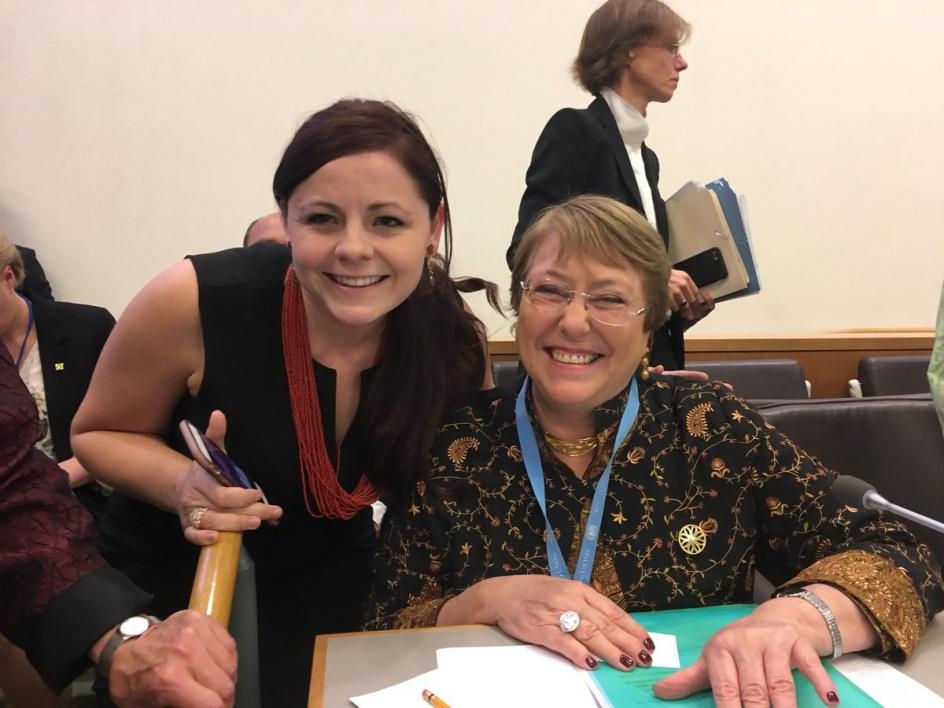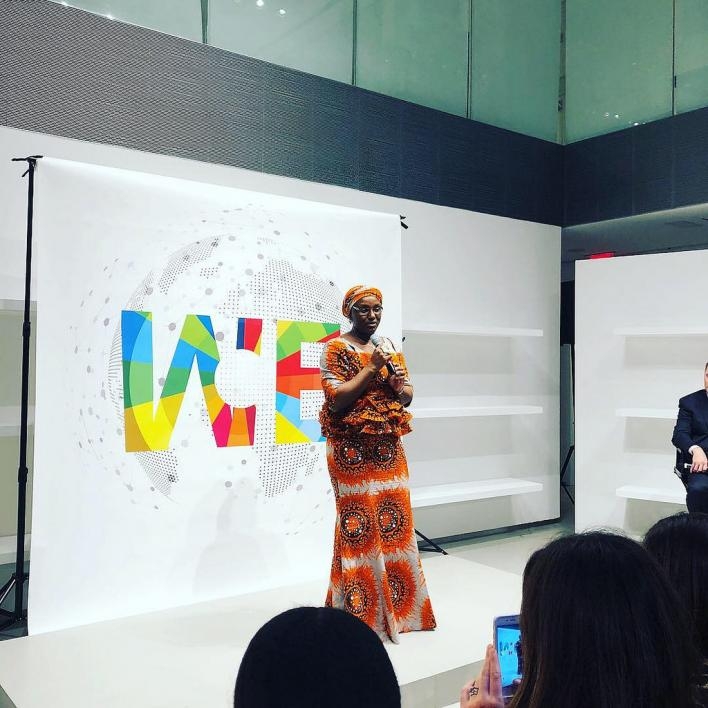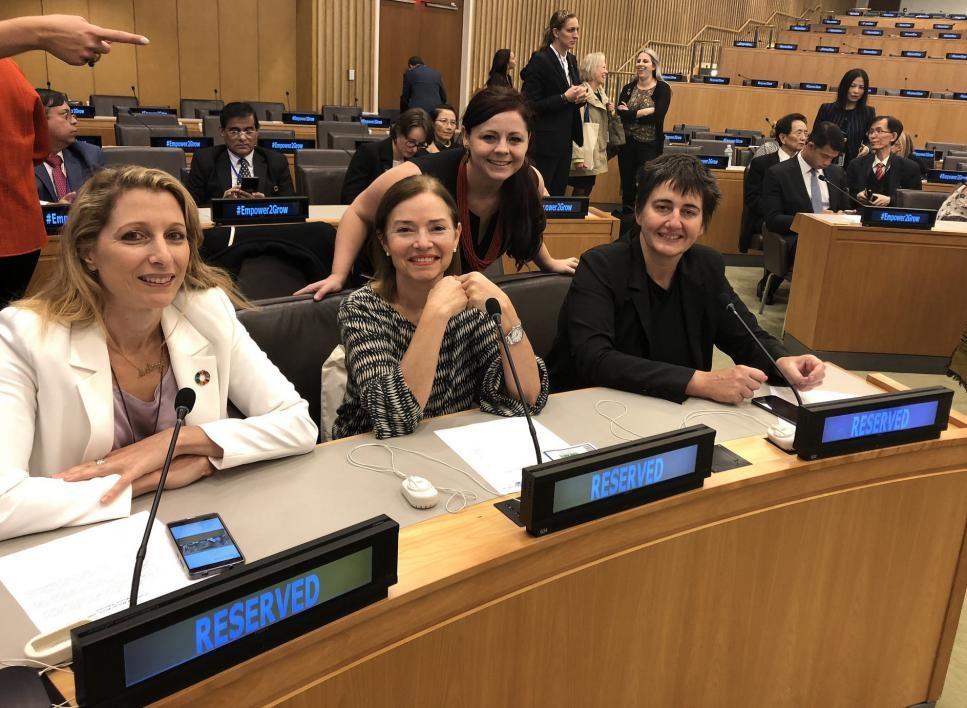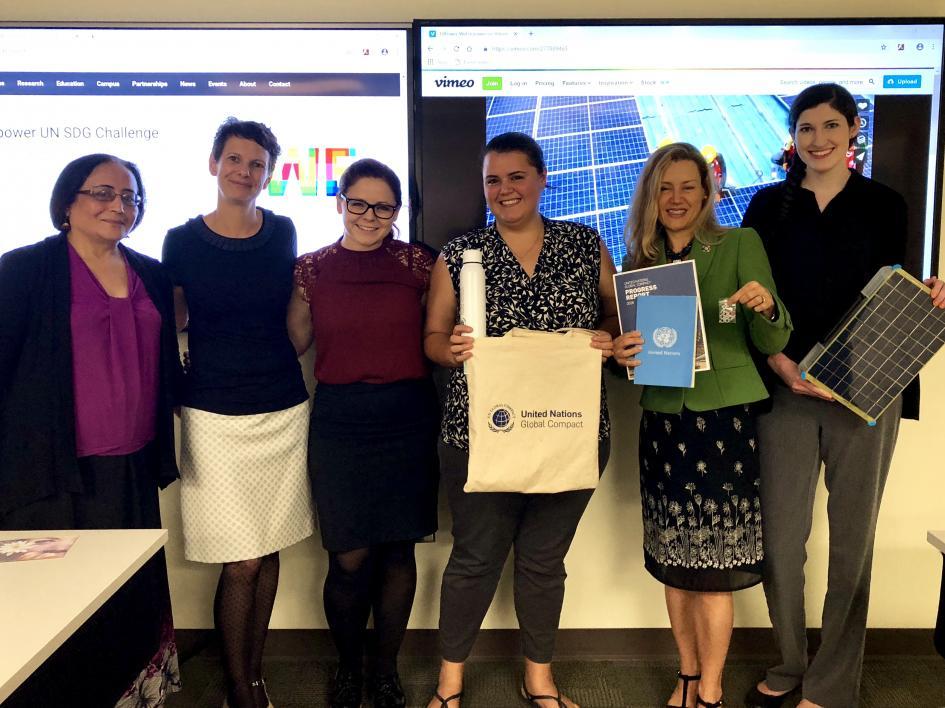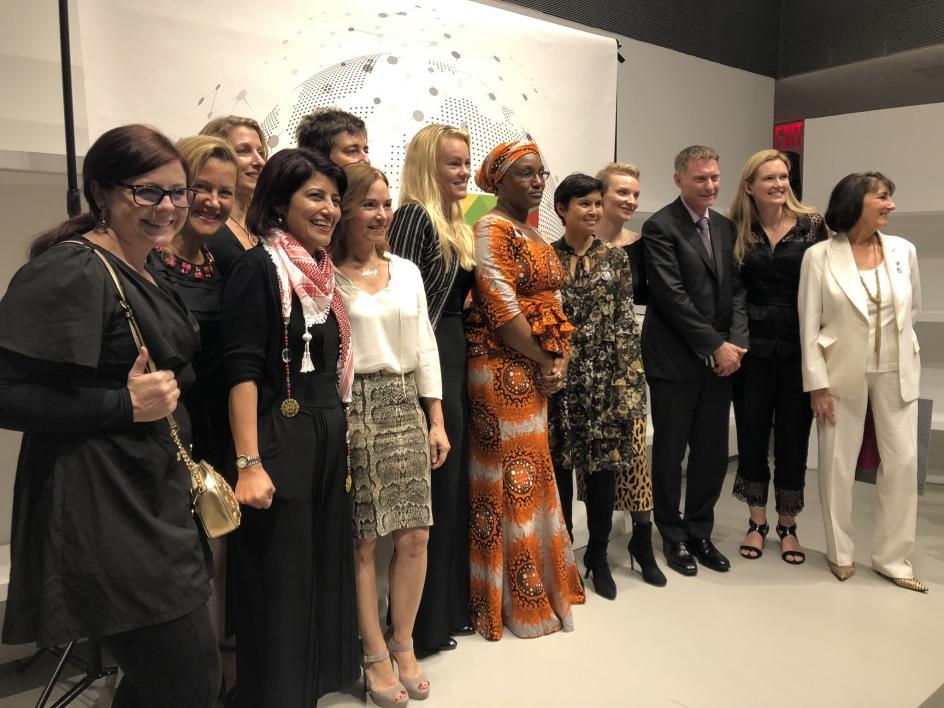Female entrepreneurs strengthen sustainable businesses through WE Empower Challenge

The five WE Empower Challenge 2018 awardees pose at a TED Talk event in New York City. Photo courtesy of Ember Van Vranken
Awardees of the inaugural WE Empower U.N. SDG Challenge — a global business competition for female entrepreneurs who are advancing the United Nations Sustainable Development Goals — recenly spent several days in New York City for the U.N. Global Goals Week. The WE Empower Challenge was initiated by Amanda Ellis, executive director of Hawaii and Asia Pacific for the Julie Ann Wrigley Global Institute of Sustainability at Arizona State University. Ellis attended Global Goals Week with the five awardees, who represent each of the U.N. regions, as did ASU student Ember Van Vranken from the Sandra Day O'Connor College of Law, who helped screen the applicants and was randomly chosen to join the group in New York.
MORE: Read Van Vranken's daily journal from Global Goals Week
“Just watching these women work (was inspiring) — they are each amazing women who have gone through so much, and it was empowering as a woman to see what they have accomplished regardless of setbacks,” Van Vranken said. “I hope that this continues to grow and become even bigger than it was this year.”
During their time in New York, the awardees were featured at a high-level session at the U.N. General Assembly with the U.N. secretary-general, the president of the World Bank, five female presidents and the U.N. high commissioner for human rights. They participated in leadership trainings including blockchain and a number of networking opportunities, and had their work highlighted by the U.N. Foundation. Among their activities was a meeting with Lauren Gula, the U.N.'s senior manager of gender equality, to sign the Women's Empowerment Principles.
The five entrepreneurs, chosen from 150 initial applicants, competed for a $20,000 grant. On Sept. 25, they pitched their innovative sustainable businesses — impacting everything from biodiversity to human trafficking — at an event hosted by fashion designer Diane von Furstenberg that brought together business leaders, celebrities and the media. Inspired by every pitch, Diane von Furstenberg made an on-the-spot decision to double the winning grant to $40,000 and award a $10,000 grant to every other participant.
Habiba Ali from Nigeria walked away as this year’s winner after pitching her company Sosai, which brings renewable energy technologies to the most rural of users, improving access to clean, affordable energy and providing clean water and better health outcomes.
In addition to their all-expense trip to New York, all five awardees received a Solar-Powered Educational Learning Library, known as a SolarSPELL, that they can implement in their remote communities to expand educational opportunities. SolarSPELL is an initiative founded and led by Laura Hosman, an assistant professor in the School for the Future of Innovation in Society and in The Polytechnic School.
“It went better than we could’ve all hoped,” said Ellis at a celebration of the WE Empower Challenge, held Oct. 1 at Wrigley Hall on ASU’s Tempe campus. She emphasized the goals of the competition: to ignite change through partnerships, invest in female entrepreneurs so they can be role models in their communities and honor women who are supporting SDGs through their companies.
“So often people see women as victims. We want people to really see them as the contributors that they are to local economies and to the SDG objectives — not as victims,” Ellis said.
The inaugural WE Empower Challenge could not have been possible, Ellis said, without strong worldwide partnerships — including with the U.N., civil society and corporations such as Salesforce and Procter & Gamble — and hard work from many women at ASU, including Kristin Meraz, an administrative specialist in the ASU Wrigley Institute. Meraz was instrumental in setting up the platform that applicants used to submit their video pitches, fielding applicants’ technical questions and providing overall organizational support for the competition.
“After seeing the applications come in — and I got to view some of the videos — it’s really amazing what these women are doing,” Meraz said.
“Our ASU team (who visited New York) of Kellie Kreiser from ASU Thunderbird, Diana Bowman from the Sandra Day O’Connor College of Law and the School for the Future of Innovation in Society, and Erin Carr-Jordan from EdPlus did a fantastic job training and accompanying the awardees throughout the week,” Ellis said. “The whole collaborative experience reinforced my belief that ASU has the potential to become a global leader in creating multiplier impact at scale for the U.N. SDGs.”
More Environment and sustainability

From ASU to the Amazon: Student bridges communities with solar canoe project
While Elizabeth Swanson Andi’s peers were lining up to collect their diplomas at the fall 2018 graduation ceremony at Arizona…

From environmental storytelling to hydroponics, student cohort crafts solutions for a better future
A select group of students from Arizona State University's College of Global Futures, a unit within the Julie Ann…

2 ASU faculty elected as AAAS Fellows
Two outstanding Arizona State University faculty spanning the physical sciences, psychological sciences and science policy have…


